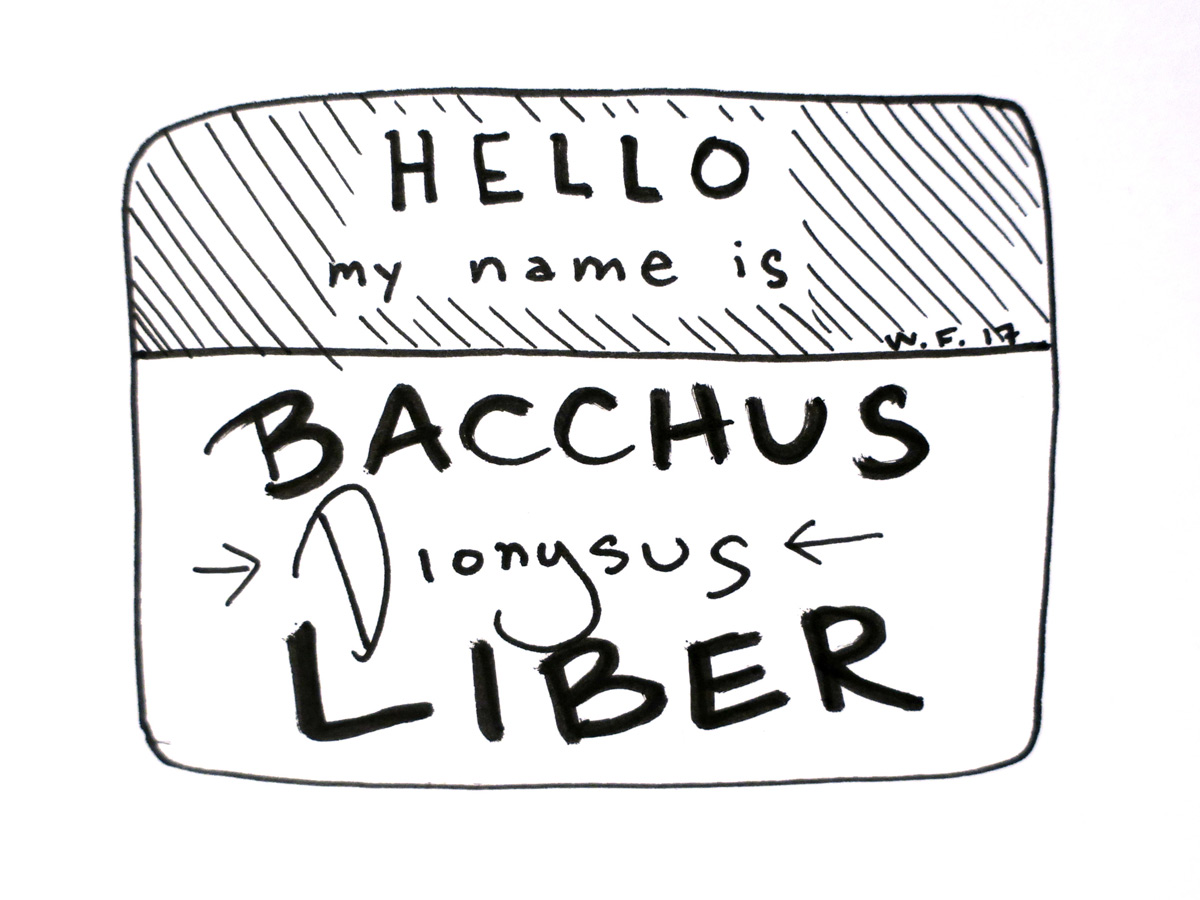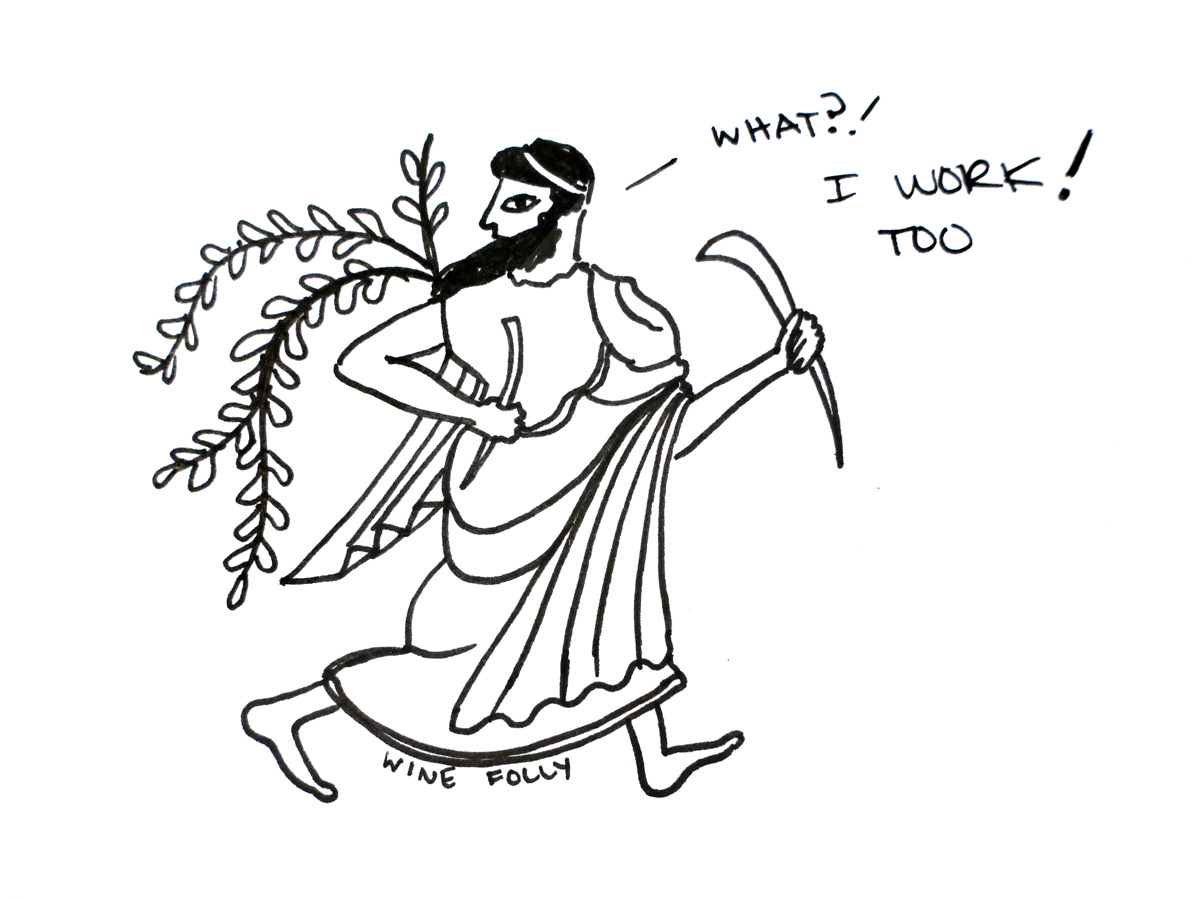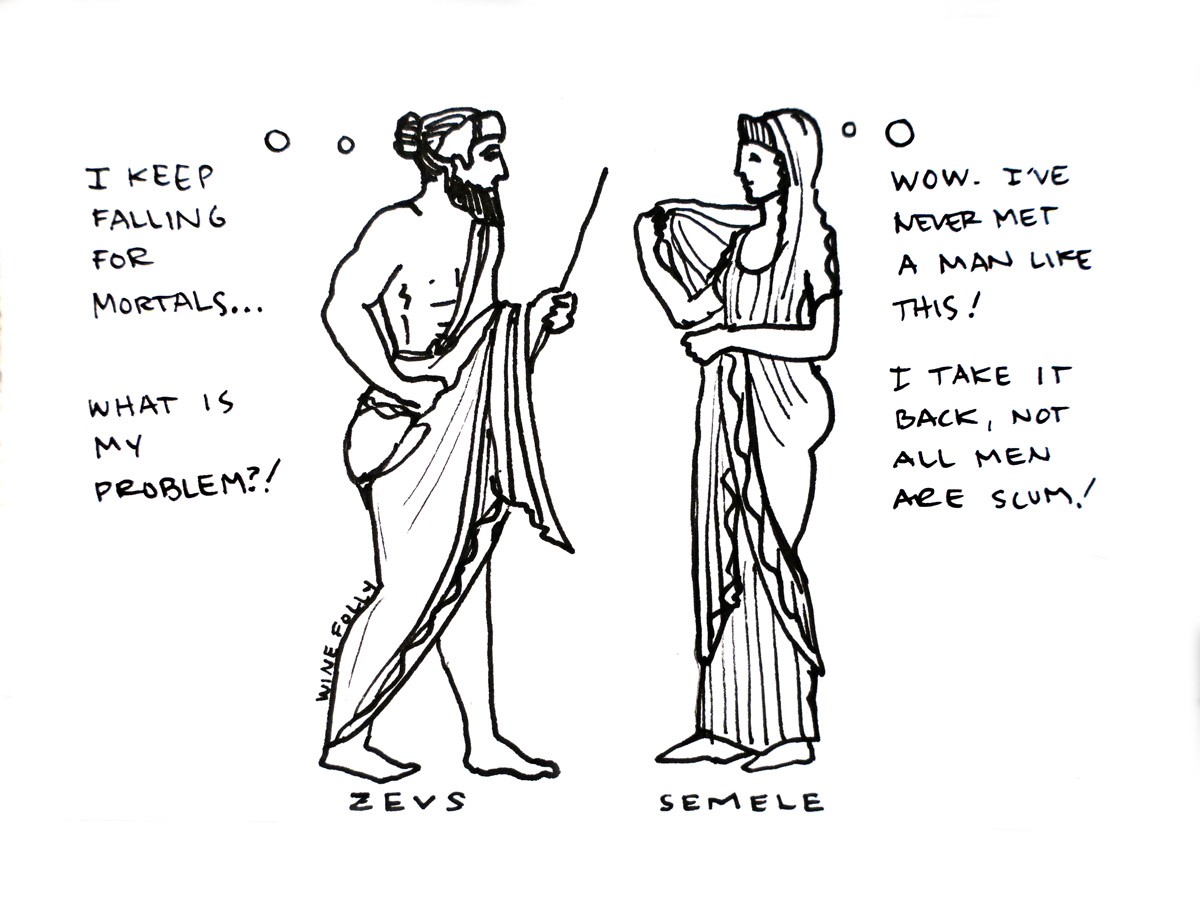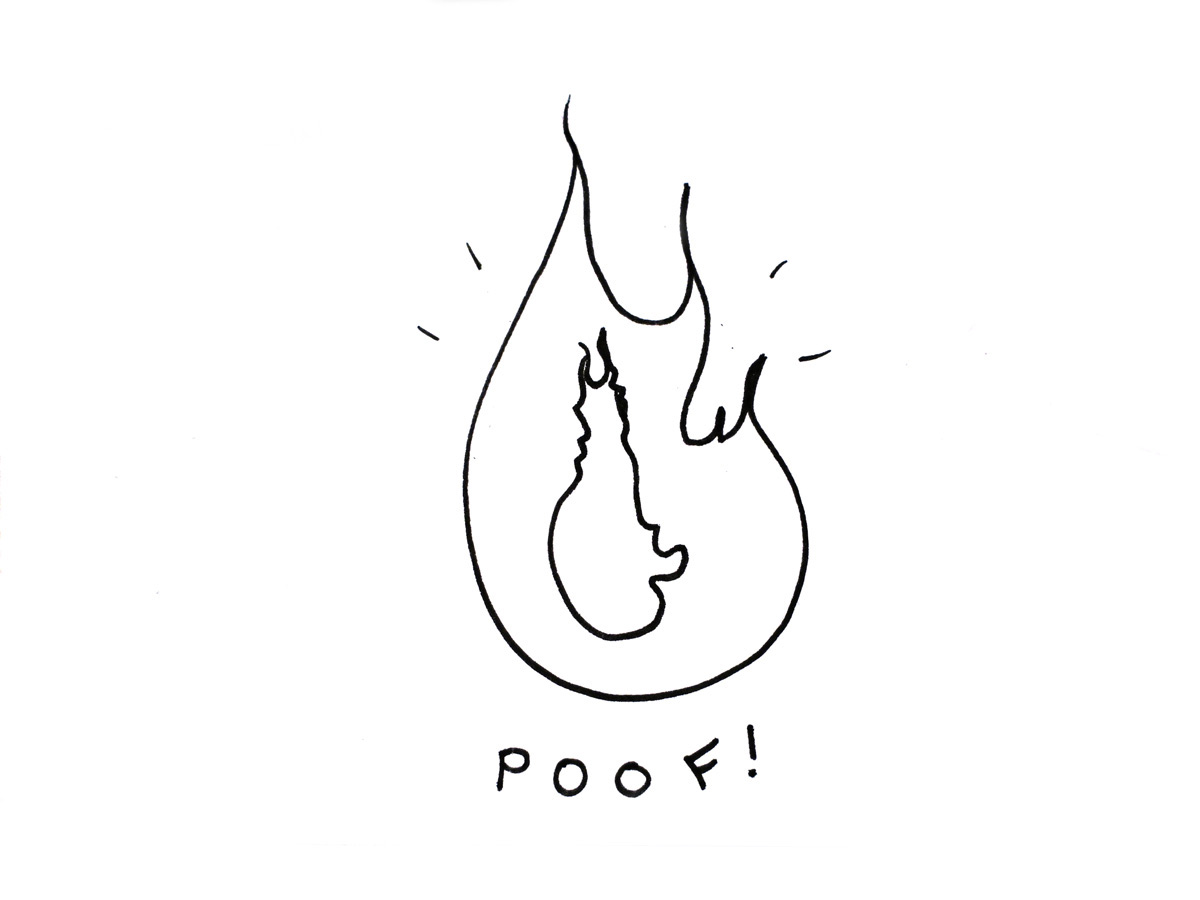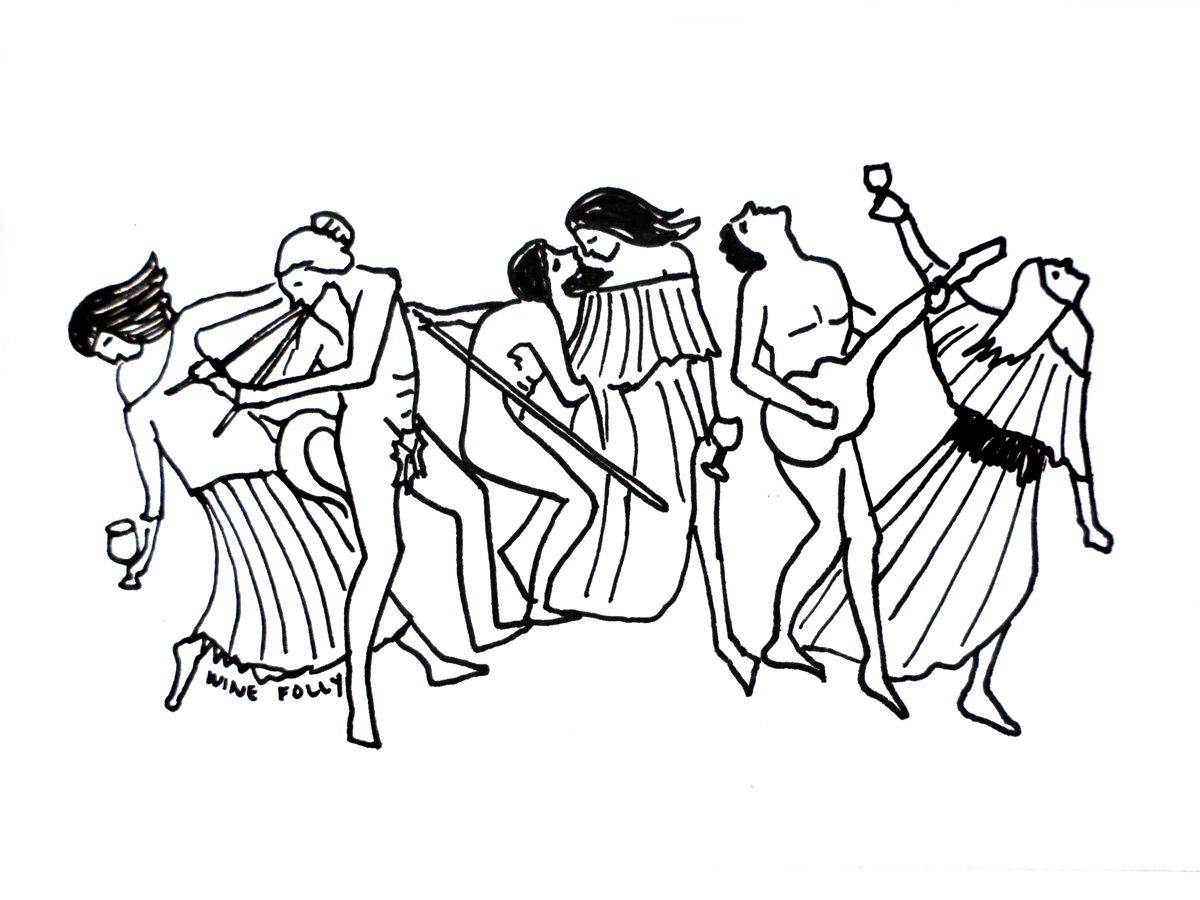He had a few names: The Romans called him Bacchus.
Bacchus was adapted from the Greek, Dionysus, and shared mythology with the Roman god, Liber.
He was the god of more than just wine.
Bacchus was primarily known as the god of agriculture and wine, but was also associated with fertility, drama, and revelry. In regards to agriculture, he was depicted as a god of trees and forest, and was often sought ought to help the orchards grow. His association with grape growing was not limited to spring alone, but he was also important during the fall grape harvest. If you’re having trouble with the dual connection of Bacchus with both drunk revelry and theatrical drama, look no further than an episode of the Real Housewives of (fill-in-the-blank) County. Bacchus remains best known today for his association with wine.

How Bacchus might look by today’s standards.
Bacchus was diversely depicted, yet always identifiable.
He is alternately depicted as a young, fit, long-haired lad or an older, bearded man. At times effeminate, and other times manly in form. He dressed ever party-ready with accompanying grape bunch(es), a wine cup, and a stylish crown of ivy atop his head. He and his followers usually carried a thyrsus (thyrsos). It was an overtly phallic symbol of pleasure and fertility made from a staff of giant fennel covered in leaves and vines, topped with a pinecone.
He had famous parents.
Bacchus was the son of the god Jupiter (Zeus) and the Theben princess, Semele, making him the only god born to a mortal mother.
He was born again.
With Bacchus in her womb, Semele was killed by flames after seeing Jupiter in his divine form. This was forbidden for mortals. Jupiter quickly sewed Bacchus to his thigh and carried him to term. Thus, Bacchus is said to be born twice and gained immortal status as being both the spawn of, and birthed by Jupiter. And you thought babies came from storks.
He had a drunken mentor.
Bacchus had an older companion, Silenus, who became his tutor, mentor, and even foster-father. Silenus was extremely fond of wine and was often found drunk. He was sensible though, practicing safe transportation by relying on the services of the ancient-day uber, a donkey, with which he is symbolically associated. The young Bacchus learned much from Silenus, and traveled for many years as far as to what is now Asia, to teach people how to cultivate vines.
He had a hard-core entourage.
Bacchus was often accompanied by satyrs, men with goat-like features usually depicted with erections, and female maenads, also called Bacchae, usually portrayed in drunken dance.
People sacrificed things in his honor.
Goats and swine were most often sacrificed to Bacchus, as they were considered hazards to the vineyards and often destructive to the grape harvest. Too bad they didn’t throw down a few phylloxera too!
He was the youngest member of the 12 Olympians.
Also referred to as the pantheon of 12 major gods, Bacchus held the last seat at this prestigious table. Although he wasn’t the most powerful, being the god of celebrations, wine, and ecstasy, he was arguably the most popular.
He threw wicked parties.
Secret ritualistic parties called Bacchanalia were held mid-March, attended only by women at first. The festivals soon were opened to men and took place five times a month. They became the ancient day frat party, filled with drunken revelry, sexual liberty, and general debauchery. They were so infamous that they were banned for a time by the Roman Senate. Along with fun shenanigans, the parties were often a place for conspirators, where people felt free to speak their minds. This lead Bacchus to earn the party nickname of The Liberator, loosening tongues with freely flowing wine. Although these parties are remembered mainly for celebration and wine, sexual promiscuity with often violent, large scale orgies were commonplace in the nocturnal festivals. Something you might want to note the next time that someone invites you to their “Blowout Bacchanalia!” You’ve been forewarned.

